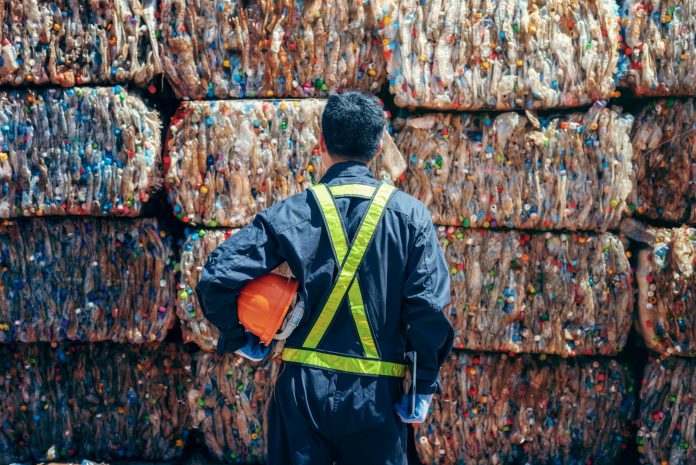REDCycle has announced a “temporary pause” of its soft plastics collection program due to supply chain issues.
On November 9, the recycling organisation announced that its recycling partners had temporarily stopped accepting and processing soft plastics, putting “untenable pressure on the REDcycle business model”.
“We can’t confirm at this stage the length of the pause, but we can assure you that all stakeholders are working on solutions for the short-term pipeline imbalance,” RedCycle announced on its website.
The announcement followed a report by the Sydney Morning Herald revealing that the organisation had “secretly stockpiled” soft plastics collected from Coles and Woolworths, transporting the plastic to warehouses for long-term storage instead of being sent to recycling partners.
Retailers and consumers affected
Consumer recycling of soft plastic has grown exponentially in recent years, with REDCycle reporting a 350% increase in plastic returned since 2019.
Coles and Woolworths have served as collection points for consumers to drop off their soft plastics. Both retailers have confirmed that soft plastic collections will pause until further notice.
“[Coles] will no longer be able to accept soft plastics recycling in our stores until an alternative arrangement can be put in place,” Coles CEO Steven Cain said in an email to Coles’ customers.
“We’re grateful for the commitment so many of our customers have shown to recycling in our stores, and we understand many will be disappointed by this news.
“We are working with government, industry, and our sustainability partners to find a long-term solution for soft plastics recycling as soon as possible,” he said.
Manufacturers seek solutions
The change impacts over 200 FMCG and retail REDcycle partners.
The Australian Food and Grocery Council (AFGC) says the REDcycle program has been a significant contributor to the recycling ecosystem and since becoming aware of the challenges, interested parties have been working on potential options to address the collection of soft plastics.
“For the longer term, there is a need for a larger scale program to recycle soft plastics,” said a statement from the Council. “To this end, the AFGC and leading Australian food and grocery manufacturers have been developing a scheme for nationwide soft plastics recycling underpinned by kerbside collection of the material.”
This week, the first in a series of kerbside soft plastic collection trials has started, with some residents in certain local government areas across the country, including Macedon Ranges Shire Council in Victoria, already participating.
The trials are part of the National Plastics Recycling Scheme project (NPRS), will help design a model for large-scale “bag-in-bin” kerbside collection and sorting of soft plastic packaging for advanced recycling.
AFGC CEO Tanya Barden says the project aims to close the loop for soft plastic packaging, capturing it to create food-grade recycled packaging materials that local food and grocery manufacturers need but currently have to buy from overseas.
She says the recently paused REDcycle store drop-off program, which is not connected to the NPRS project, addressed a part of the recycling market but for the longer term, there is a need for a larger scale program to recycle soft plastics and provide recycled, food-grade packaging material onshore.
“The industry is committed to further improving the environmental profile of soft plastic packaging, particularly with the current limitations in functionality, collection and processing of alternative materials such as compostable packaging,” Ms Barden said.
Seventeen major food and grocery manufacturing companies have signed on as Foundation Supporters of the NPRS project, committing funds to the trials and pilots.
Local recycling
Plastics from the Macedon Ranges Shire Council trial will be taken for advanced recycling to APR Plastics in Dandenong, Victoria. In advanced recycling, the material is converted into oil that can be used to make new plastics. APR Group Managing Director, Darren Thorpe, says capturing soft plastics in sufficient volumes is essential for a domestic advanced recycling industry.
“There is enormous demand for recycled food-grade plastics from manufacturers, not just here but around the world,” Mr Thorpe said.
“We have the technology to do that and these trials are shaping a scalable model that will enable the creation of a sustainable and efficient advanced recycling industry for soft plastics here in Australia.”





